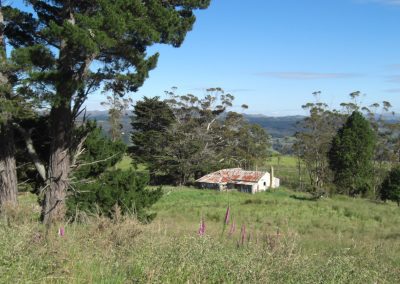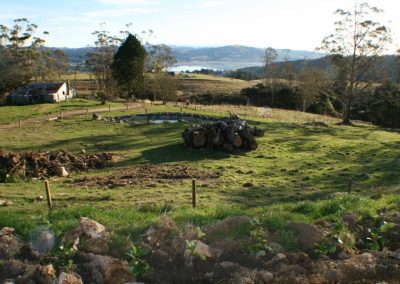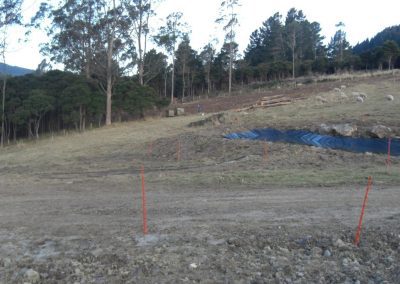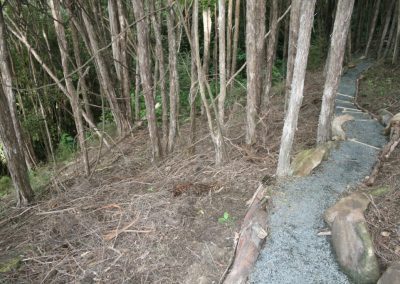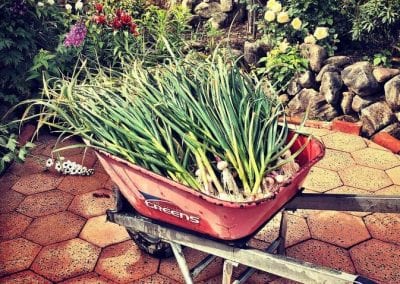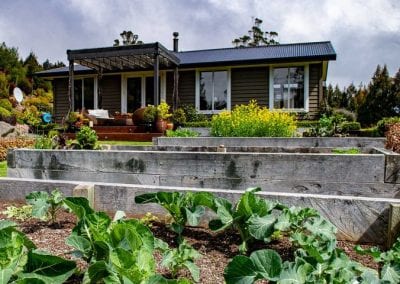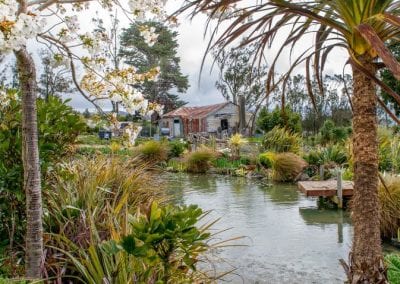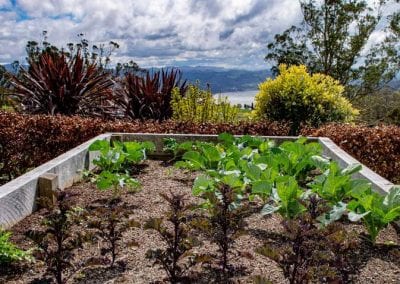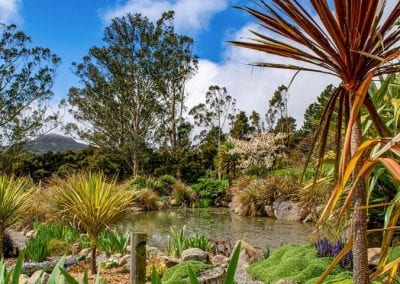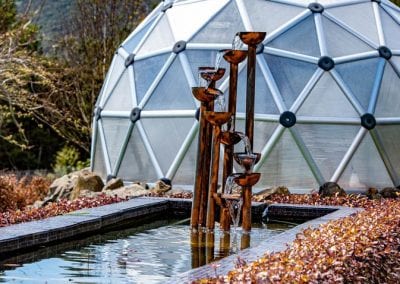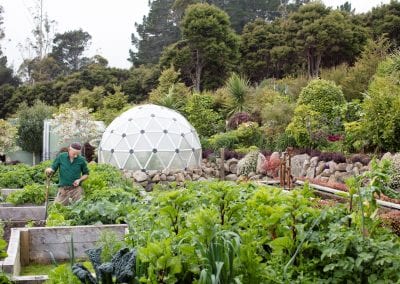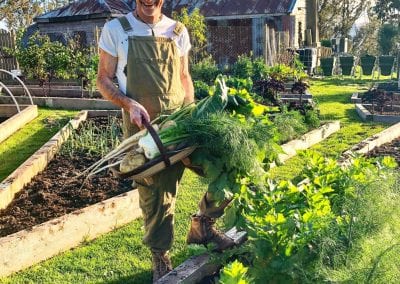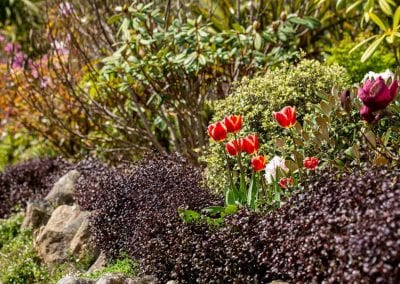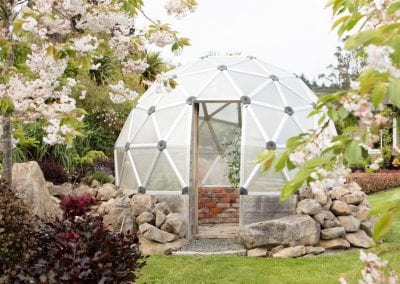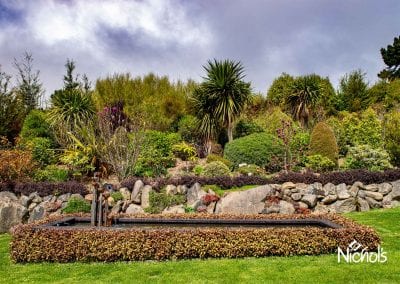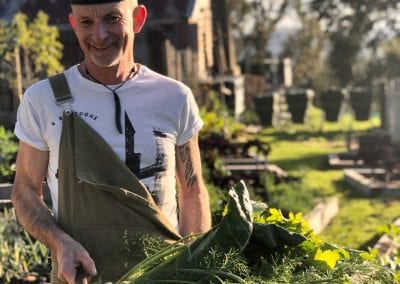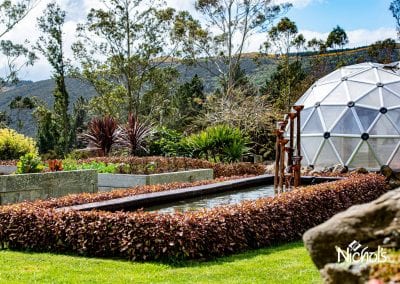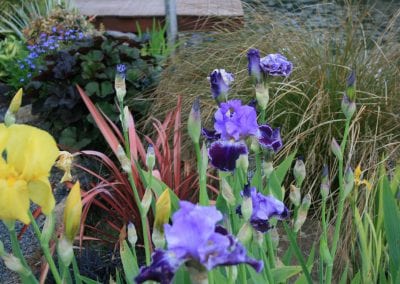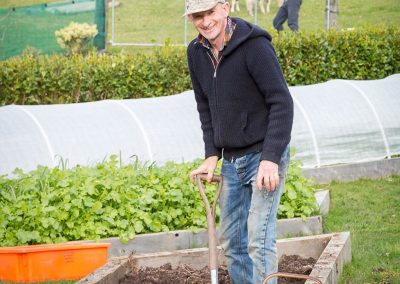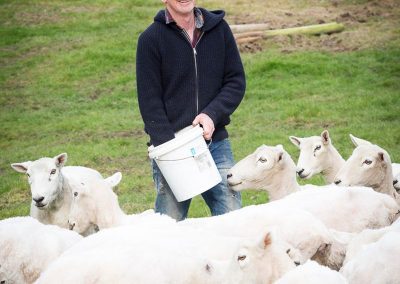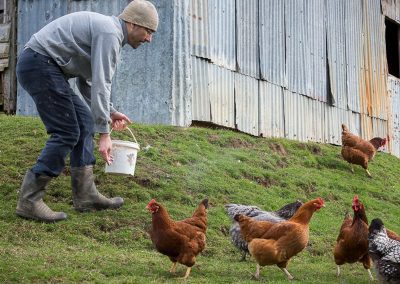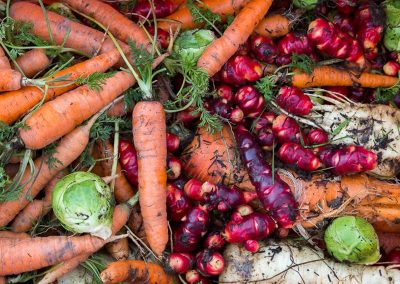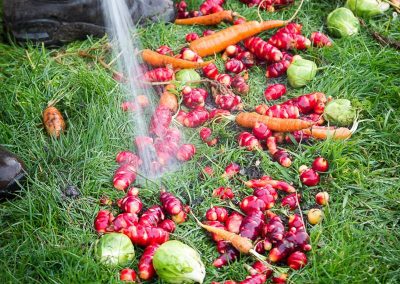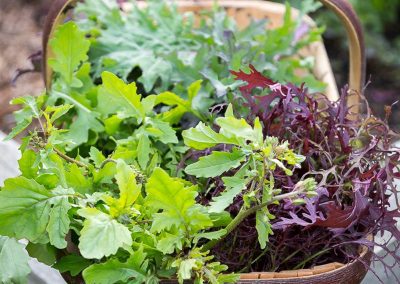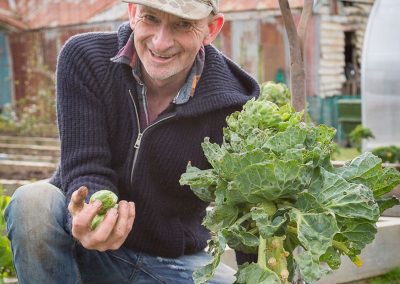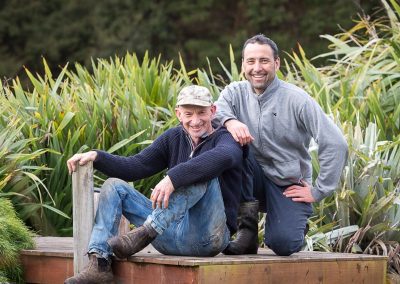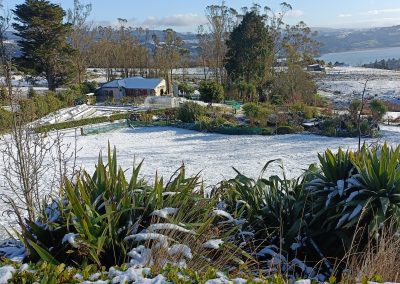TASTE NATURE ORGANIC GARDENS
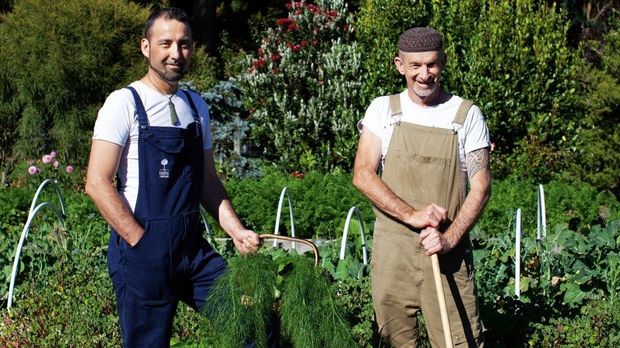
The Taste Nature Certified Organic Gardens are located in Waitati. Rodney Mcdonald owner and
landscaper has transformed their lifestyle block into a wide variety of flower and food
gardens and native plantings to create an environment that represents their ethical and
sustainable values.
The property is opened to the public for open days held during the spring and summer months.
Taste Nature Organic Gardens grows food for the cafe and store, providing low-carbon miles for our food supply.
WHY ORGANIC
Organic is more than just a way of farming; it’s a way of life that brings humans and our earth into a nourishing relationship. Organic producers work with nature to grow healthy safe food that nourishes people, while protecting our land at the same time.
Many consumers choose certified organic food for what’s not in it. Organic producers follow a strict code of practice to protect human and ecological health. Organic farmers do not use synthetic chemicals, including fertilisers, pesticides, weed sprays and antibiotics. Organic products are also free of GMOs and artificial ingredients. In a time when many of the products used to make conventional food sadly have been linked to human disease and environmental degradation, organic offers a safe and hopeful alternative. Eating organic dramatically lowers exposure to pesticides.
However, the real magic of organic production is about much more than avoiding the nasty stuff. Organic farmers begin with a focus on creating healthy living soils. This builds the foundation for strong, naturally healthy plants and animals – and healthy food. Organic food has consistently been found to have higher levels of health-giving antioxidants.
SOIL HEALTH
Comprehensive research shows the profound connections between soil health and human physical and mental wellbeing, underscoring the urgent need for global attention to soil degradation.
Key Findings
-
Nutritional Quality and Malnourishment: Soils rich in organic matter leads to higher crop yields and better nutritional quality in food. Warnings that the ongoing decline in soil health is directly contributing to nutritional loss in food (protein content in wheat decreased by 23% from 1955 to 2016). Nutrient-dense foods also support the gut microbiome, which plays a crucial role in regulating mood, immune function, and overall mental and physical health.
-
Physical touch with soil can improve gut health: Humans share many of the same bacterial groups as soil, and studies have shown that the amount of human contact with the soil positively affects the diversity of the human gut microbiota and gut health.
-
Soil degradation is directly linked to malnutrition, when soil quality declines, it produces crops with lower nutritional value, leading to deficiencies in essential micronutrients when consumed by humans, ultimately contributing to malnutrition, especially in regions where people rely heavily on subsistence agriculture; this is further exacerbated by reduced crop yields due to degraded soil, causing food insecurity. .
-
Mental Health: Healthy soils support the production of nutrient-rich foods that are essential for mental health. The report highlights that deficiencies in key micronutrients such as B1, B6 and B9 – often caused by poor soil health – are linked to mental health disorders such as depression. Poor soil health is also related to Magnesium, Iron and Zinc deficiencies which relate proper neurological functioning. The findings stress the importance of maintaining healthy soils to support mental wellbeing through a balanced diet. The connection between our gut biome and our production of serotonin and dopamine has been well established.
-
Ecosystem Services and Living Environments: Underscores that healthy soils are foundational to maintaining clean air, water, and stable climates, all of which contribute to better living environments. The degradation of soils leads to the astronomical loss of top soil, poor air quality, and increased vulnerability to natural disasters, directly impacting community resilience and public health.
-
Poor Soil Quality increases Soil Erosion, resulting in significant loss of fertile land. It has led to increased pollution and sedimentation in streams and rivers, clogging these waterways and causing declines in fish and other species. And degraded lands are also often less able to hold onto water, which can worsen flooding.
Check out the links below to discover the work they have created on their gardens in the two published articles in NZ Gardening magazine.
Rodney and Clinton purchased their Waitati property in 2010. The section was covered in grass scrub, gorse and rocks. Rodney’s vision over the years has grown into extensive landscaped gardens and new tree plantings. Starting with a blank canvas the garden focuses on organics, soil health, bio-dynamics, bio-diversity, extensive native plantings, regeneration of native bush, food waste system, hot composting and permaculture.
GET IN TOUCH
131 High Street, Dunedin
03 474 0219
shop@tastenature.co.nz
OPENING HOURS
Shop & Deli
Mon-Fri: 8-6pm
Sat: 9-4pm
Sun: Closed
Kitchen
Mon-Fri: 8-2pm
Sat: 9-2pm
Sun: Closed
Public Holidays
We are CLOSED on all public holidays.
Espresso Coffee
Mon-Fri: 8-5pm
Sat: 9-3pm
Sun: Closed


